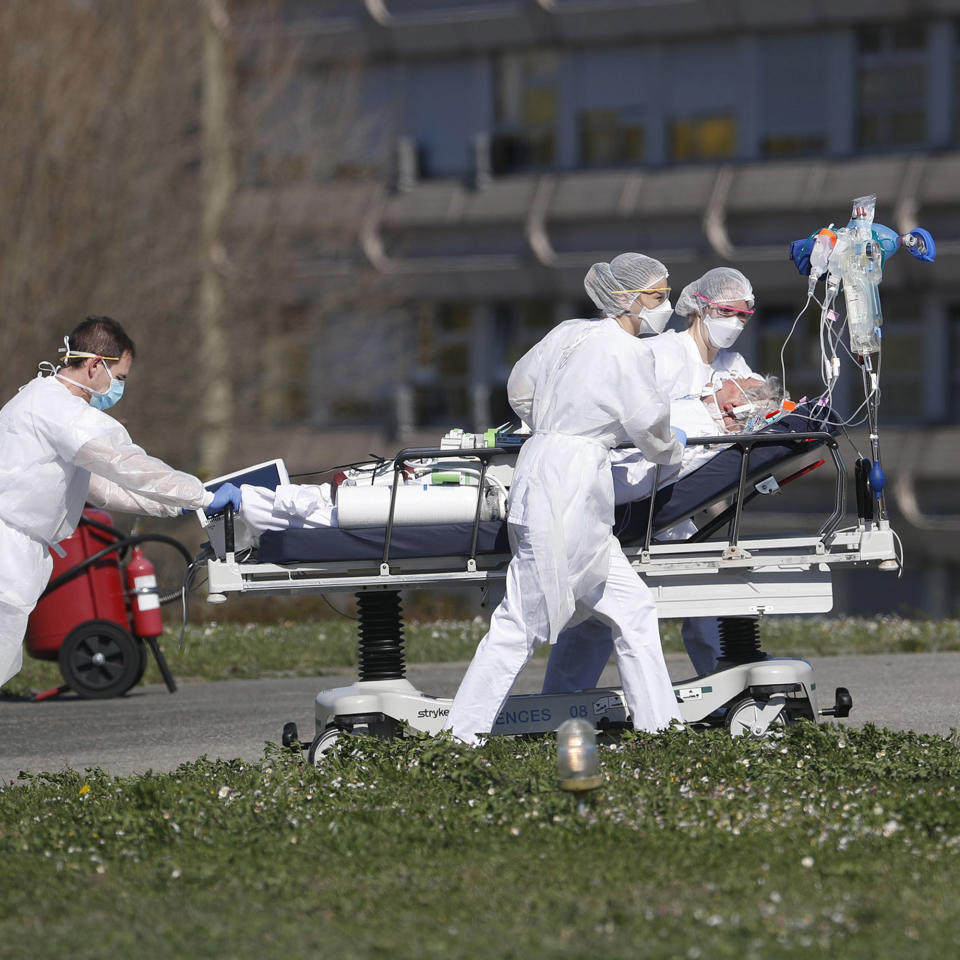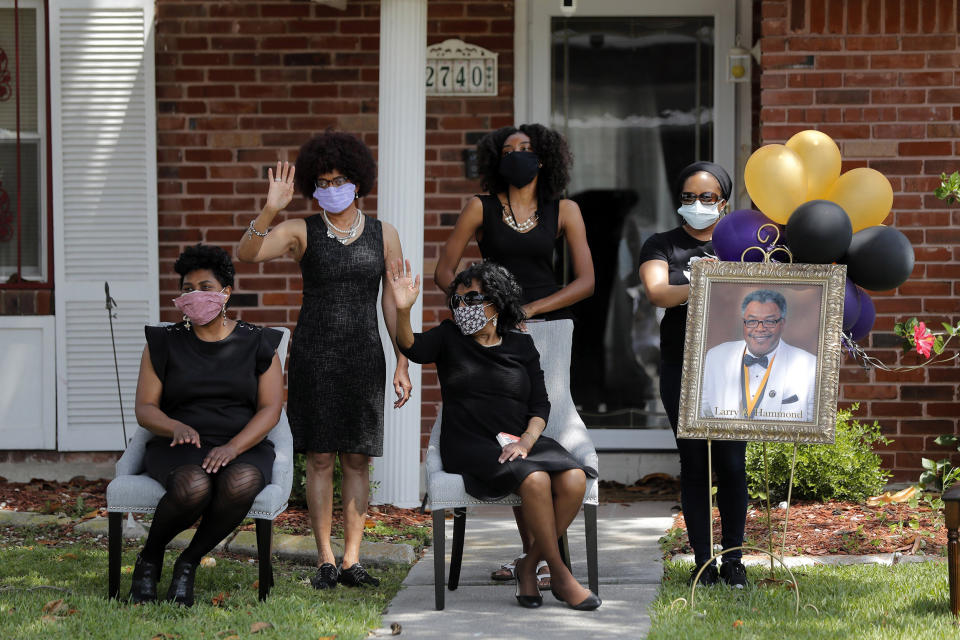Coronavirus has now killed 1 million people around the world
More than 1 million people have died from COVID-19 since the coronavirus was first identified late last year in China, according to data compiled by Johns Hopkins University.
With more than 200,000 deaths, U.S. continues to lead the global death toll, followed by Brazil at 142,000 and India at 95,500, the tally on Monday showed.
"One million is a terrible number, and I think we need to reflect on that," Mike Ryan, executive director of the World Health Organization's Health Emergencies Program, said during a news briefing Friday.
Last week, as 7 million cases were confirmed across the U.S., experts warned that a second surge this fall and winter could be catastrophic for the country, as hospitals could be forced to shut down or cut crucial services.
And the global pandemic shows no signs of easing — quite the opposite.
Countries around the world are experiencing new waves of infection, and scientists are ramping up efforts to deliver an effective vaccine.
The World Health Organization has warned that the worldwide death toll could double to 2 million before a successful vaccine is widely used and that it could be even higher without concerted action to curb the pandemic.
It is "not only imaginable but, unfortunately, and sadly, very likely," Ryan said.
But Ryan added that many measures can be taken to control the disease's spread, along with advancements in treatment that could keep the death toll down.
"The real question is are we prepared, collectively, to do what it takes to avoid that number. Are we prepared to fully engage in the surveillance and testing and tracing, in managing our own risks at society and community level?" he said.

The global death toll could already be higher than what is reported.
In Mexico, which has the world's fourth-highest death toll, topping 76,430, Assistant Health Secretary Hugo López-Gatell said Sunday that definitive data won't be available for "a couple of years."
Mexico does little testing, and many people die without a test — meaning many coronavirus deaths go unconfirmed, contributing to a significant undercount.
López-Gatell described the definitive death toll as "one of these technical details" and said the pandemic "cannot be measured."
Unlike in the United States and other countries where the pandemic has killed tens or hundreds of thousands, in China, where the pandemic originated, the reported numbers of dead have been much lower.
According to numbers from the country's health commission, there have been 4,634 deaths and more than 85,000 cases since the beginning of the pandemic.
President Donald Trump has accused China of trying to cover up the outbreak in its initial stages, and he has accused Beijing and the WHO of not having acted soon enough to stop the virus from spreading globally, adding to growing U.S.-China tensions.
Tough restrictions enforced by governments around the world to stem the virus have at the same time wreaked havoc on the global economy, hurting job markets and businesses of all sizes.
The World Bank has called the pandemic "the largest economic shock the world has experienced in decades," predicting a more than 5 percent contraction in global gross domestic product in 2020.

While mass testing programs have been put in place in some countries, a surge in new cases across Europe has meant some governments are struggling even more to ensure tests are available.
Colleges across the United States reported thousands of new cases days after opening their doors last month, driven by students socializing with little or no social distancing.
The University of Wisconsin-Madison had more than 2,800 confirmed student cases as of Friday. At Kansas State University, more than 2,200 students have been placed in quarantine or isolation. The University of Missouri has recorded more than 1,500 confirmed cases among students since classes started.
In the U.K., students at Manchester Metropolitan University have been told to self-isolate for 14 days after 127 tested positive for COVID-19. And the University of Glasgow has offered a rent rebate to residents and support with securing food and medical supplies for self-isolating students.
The virus has also upended sporting events worldwide, with fans unable to attend because of social distancing restrictions.
Last week, Japan's new prime minister, Yoshihide Suga, said Japan was determined to host the Tokyo Olympics in 2021 after the games, originally scheduled for this summer, were postponed because of the pandemic.
Organizers of the Tokyo Olympics unveiled a plan Friday to hold a streamlined event amid the pandemic.
In France, despite spiking numbers of cases, the French Open tennis tournament moved from its usual late May to early June dates because of the pandemic, started Sunday, with only 1,000 spectators allowed in each day, compared to tens of thousands who would normally be in attendance.

Meanwhile, Australia is showing signs of progress. Its second-largest city, Melbourne, has further eased lockdown restrictions imposed after a surge in coronavirus cases.
The city and surrounding parts of rural Victoria state were placed under strict lockdowns last month, shuttering schools and nonessential businesses, imposing a nighttime curfew and prohibiting public gatherings. The restrictions were scheduled to be eased over the weekend.
That some countries are faring better than others comes down to the effectiveness of public health measures, said Linda Bauld, professor of public health at the University of Edinburgh.
But Bauld said many of those measures, such as robust contact tracing and isolation of positive patients, have to rely on people following guidance and regulations.
"For citizens to be able to do so, there must be good information that is consistent and comes from reliable sources," she added. "Governments will only succeed if they take people with them, particularly the longer the crisis continues."

